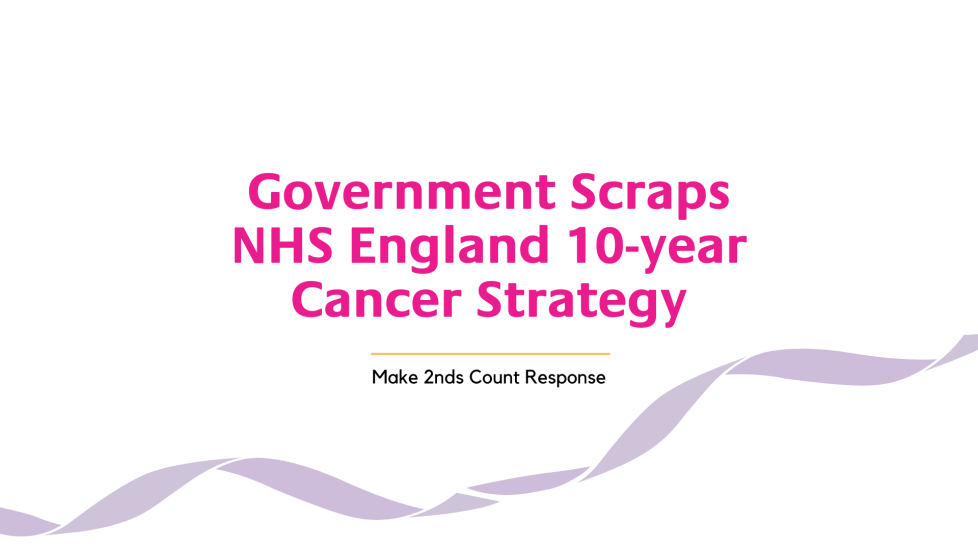21st February 2023 by Alexander Kolliari-Turner News

The government has scrapped the specific NHS England 10-year cancer strategy for a new blended 5-year Major Conditions Strategy.
England’s health and social care secretary, Steve Barclay, told the House of Commons on 24 January that the Department of Health and Social Care is currently developing a new 5-year Major Conditions Strategy that will tackle the major conditions that contribute to the burden of disease in England. Conditions covered by the Major Conditions Strategy will include: cancers, cardiovascular diseases (including stroke and diabetes), chronic respiratory diseases, dementia, mental ill health and musculoskeletal disorders.
This means that cancer will no longer have its own dedicated NHS England 10-year strategy. In his announcement to the Commons Mr Barclay says that an interim report on the Major Conditions Strategy is intended to be published in the summer. The scrapping of a cancer specific strategy has been condemned by numerous cancer charities, academics and senior oncologists. Wales and Northern Ireland have their own cancer strategies, and Scotland is due to publish theirs in March with this decision now leaving England as an outlier.
Until recently, the government was committed to publishing an NHS England 10-year cancer plan. Michelle Mitchell, chief executive of Cancer Research UK (CRUK), notes this was in response to cancer treatment targets being missed for years, even before the COVID pandemic. Michelle, commenting on this topic on the CRUK website, noted that as of November 2022, only 61% of patients in England started treatment within 62 days of an urgent suspected cancer referral. She notes that the 85% government target for this metric has not been met since 2015.
In a recent editorial in the prestigious British Medical Journal, Professor of Cancer and Global Health at King’s College London, Richard Sullivan, and Dr Ajay Aggarwal, a Consultant Clinical Oncologist at Guy's St Thomas' NHS Trust, have said this is a “catastrophic decision that will cost lives”. They argue that in order to deliver affordable, equitable, and high quality cancer care, dedicated cancer plans are required. They condemn this decision and discuss that without a dedicated long term plan for cancer, services will fracture, costs will increase, inequalities widen, and patients will experience even greater delays leading directly to lost lives. They believe that placing cancer into an overall non-communicable disease agenda “simply signals that cancer is no longer a political priority or reflects a government not willing to deal with its complexity and escalating costs”.
In his address to the Commons Mr Barclay said “Our approach will harness the potential of whole person care, addressing the fact that our health and care system has been built in silos, often focused around specific diseases or organs in the body. Our workforce model needs to adapt, reflecting that the NHS is caring for patients with increasingly complex needs and with multiple long-term conditions. We need greater emphasis on generalist medical skills to complement existing deep specialist expertise in the NHS, supporting clinical professionals to heal with whole person care.” He concluded that the Major Conditions Strategy is still in development and that contributions are still being taken from his colleagues across the House, stakeholders, citizens and industry.